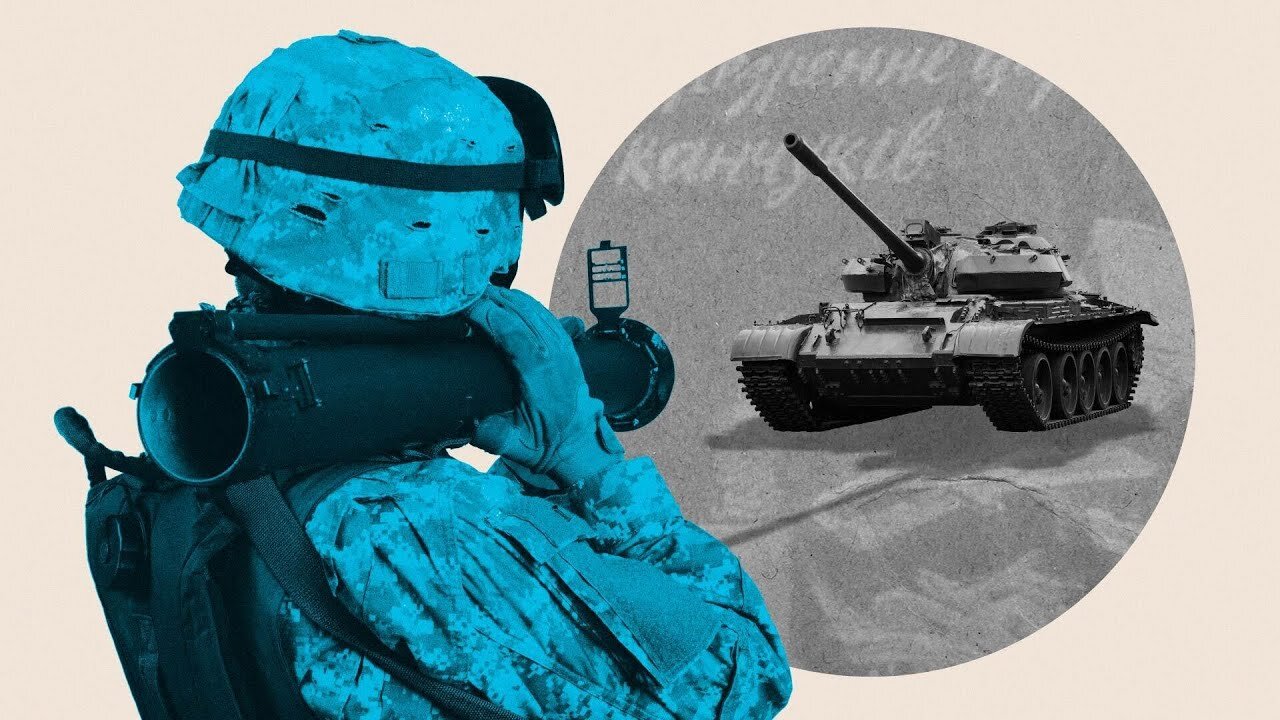Premium Only Content

Ukraine Changes the Face of War Forever
Video by ReasonTV
There's a powerful David vs. Goliath lesson emerging from Russia's brazen, unprovoked invasion of Ukraine that should give deep pause to global superpowers who still think they can simply muscle the world into any shape they want.
Reason is the planet's leading source of news, politics, and culture from a libertarian perspective. Go to reason.com for a point of view you won't get from legacy media and old left-right opinion magazines.
----------------
Every Russian tank that gets fried in Ukraine is sending the message that traditional armies can no longer expect to dominate simply because they have more troops, weapons, and money. Russian armored vehicles are falling victim to Next Generation Light Anti-Tank Weapons (NLAWs), which can be carried by individual soldiers, unslung in seconds, and deployed with little training and fatal accuracy. There are credible reports that Russia has already lost $5 billion worth of military equipment in a month of fighting in Ukraine. The human cost for Russia is even more staggering: Nearly 10,000 soldiers have been killed in action, including at least five generals.
That's the reality of contemporary warfare: Smaller, nimbler groups fighting back effectively against lumbering, dumb relics of the past. Despite being the fifth largest fighting force on the planet and starting the war with five times the number of active military as Ukraine, Russia has been stymied in what virtually all observers expected to be a cakewalk.
This isn't to say that Russia isn't also inflicting massive, horrific violence against Ukraine—or that it won't prevail in this conflict, especially the longer things drag on. But this war underscores what James Dale Davidson and Lord William Rees-Mogg called the changing "logic of violence" and "the diminishing returns to violence" in their prophetic 1997 book The Sovereign Individual.
As weapons have become smaller, cheaper, more effective, and more widely dispersed, it's harder and harder for old-style militaries and countries to quickly and effectively achieve their objectives through brute force as they meet resistance at every turn. That resistance includes "information warfare"—which includes hacking and cyber attacks—but also the use of social media, which Ukraine's President Zelenskyy has excelled at to project an aura of invincibility and to cast the conflict in stark terms of good vs. evil.
This lesson shouldn't be new to Americans, as our failures over the past two decades in Afghanistan and Iraq underscored the new reality that old-school invasion and occupation is more expensive and temporary than it is quick and effective. But Russia's incompetence drives home in graphic detail to us—and, one hopes, to the Chinese officials supposedly eyeing an invasion of Taiwan—that even if Goliath does take out David, the price is too high and the victory too transient to bother undertaking.
If the collapse of the Soviet Union—that gargoyle incarnation of belief in top-down authority, power, and decision-making—was the beginning of the end of the 20th century's romance with the nation-state, then Russia's blundering in Ukraine and the United States' mess in central Asia and the Middle East may be its epitaph.
The future belongs not to the ignorant armies of the night who seek to command and control but to those who embrace and empower the decentralization of weapons, technology, information, currency, and individual ingenuity and courage.
Written and narrated by Nick Gillespie. Edited by Regan Taylor.
-
 LIVE
LIVE
The Dan Bongino Show
4 hours agoTrump Is Setting The Old World Order Ablaze (Ep. 2414) - 02/03/2025
160,582 watching -
 LIVE
LIVE
The Rubin Report
1 hour agoJD Vance Makes Host Go Quiet with This Brutal Warning for These Major Countries
5,095 watching -
 LIVE
LIVE
Steven Crowder
2 hours ago🔴 Why Trump & America Will Dominate the Global Trade War
45,197 watching -
 DVR
DVR
vivafrei
14 hours agoLive with "Bitcoin Jesus" Roger Ver - the Indictment, Law-Fare and the War on Crypto
60.6K7 -
 LIVE
LIVE
Bannons War Room
1 year agoWarRoom Live
31,547 watching -
 LIVE
LIVE
LFA TV
22 hours agoTARIFF TRADE WAR! | LIVE FROM AMERICA 2.3.25 11am
4,913 watching -
 LIVE
LIVE
Caleb Hammer
1 hour agoProfessional Redditor Treats His Wife Like A Pet | Financial Audit
286 watching -
 36:07
36:07
Rethinking the Dollar
1 hour agoMonday Morning Check-In | Tit-for-Tat Trade Wars: Why Gold Is Still Winning
4.19K -
 56:02
56:02
Randi Hipper
1 hour agoBITCOIN AT CRITICAL LEVELS AS MARKET CRASHES! LATEST PRICE UPDATE HERE
17.9K1 -
 2:22:37
2:22:37
Matt Kohrs
10 hours agoMARKET CRASH! Trump's Trade War Bloodbath || The MK Show
50.4K6